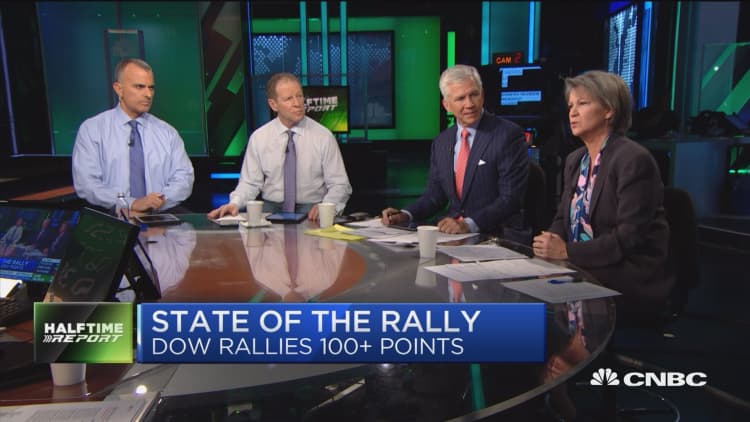
U.S. equities pulled back on Thursday as investors worried about rising interest rates.
The declined 0.1 percent to close at 2,821.98 after rising as much as 0.4 percent. The Nasdaq composite fell 0.4 percent to 7,385.86. Earlier, the tech heavy index traded 0.4 percent higher as Facebook shares hit an all-time high. Facebook reported better-than-expected earnings and revenue on Wednesday.
The Dow Jones industrial average closed 37.32 points higher at 26,186.71. It rose as much as 157.31 points and traded as much as 134.95 points lower.
"We've seen the bond market roll over for most of 2018," but we're seeing even more intense selling recently and that's driving yields higher, said Daniel Deming, managing director at KKM Financial. "Today we're seeing these bonds approach levels we haven't seen in a long time."
The benchmark 10-year yield rose to trade at 2.79 percent, while the 30-year bond yield topped 3 percent for the first time since May.
Thursday marked the first day of the new month. January was the best month for the S&P 500 and Dow since March 2016, while the Nasdaq composite had its biggest one-month gain since October 2015. The S&P 500 also notched its best January performance since 1997.
Historically, strong January gains have led to solid gains in the equity market for the rest of the year, according to Howard Silverblatt, senior Index analyst at S&P Dow Jones Indices.
Stocks were under pressure earlier after the release of weaker-than-expected productivity numbers. The U.S. government said in a preliminary report that fourth-quarter productivity fell 0.1 percent. Economists polled by Reuters expected a gain of 1 percent.
"Not only did productivity for the fourth quarter miss consensus but it also fell below 0%," said Jeremy Klein, chief market strategist at FBN Securities, in a note. "A weak print theoretically portends to higher inflation." He also said that "an alarming drop" in German stocks put further downward pressure on the U.S. market earlier on Thursday.
The German Dax fell 1.4 percent on Thursday. UK and French stocks also fell, with the FTSE 100 declining 0.6 percent and the CAC 40 slipping 0.5 percent.
Thursday marks the busiest days of the U.S. earnings season, with about 70 companies reporting. Alphabet, Amazon, Apple, Visa and Mattel are among the companies scheduled to report. UPS, AutoNation and Blackstone are among the companies that reported before the bell.
Lindsey Bell, investment strategist at CFRA, said tech earnings will be key for the market to continue moving higher. "About 51 percent of the tech sector has reported and 86 percent of those companies have beaten expectations. That's better than the S&P 500's beat rate."
Wall Street also looked ahead to the release of the U.S. government's monthly jobs report. Economists polled by Reuters expect the economy to have added 180,000 jobs.
"People have mostly discounted the headline number because unemployment is at 4.1 percent," said Jason Celente, senior portfolio manager at Insight Investment. He noted investors are more likely to focus on the average hourly earnings for last month. "From what we've seen, the wage growth number should not surprise to the downside."
The U.S. economy has been doing well recently, with key data pointing to further growth. On Thursday, the Atlanta Fed GDPNow forecast for the first quarter of 2018 rose to 5.4 percent from 4.2 percent.



